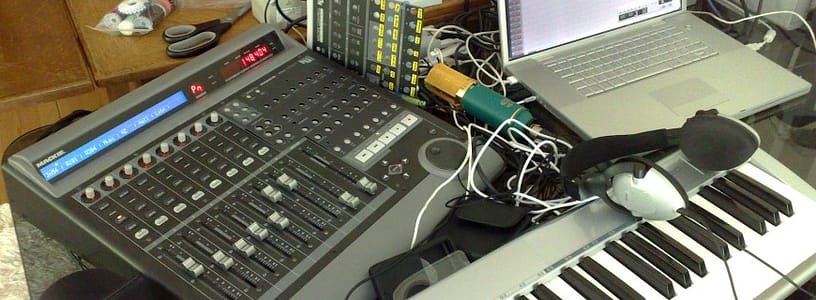Considering Online Music Production Courses? A Few Tips on Getting It Right

If you are really passionate about music, can figure out its grammar and composition easily, are adept in technical manipulation, and above all possess a creative mind, then a career in music production could indeed be extremely fulfilling. Even though at present, the job outlook is not something that will set your heart racing, the boom in the electronic and the Internet is sure to open up a lot of possibilities. Even with piracy being something of a dampener, the long-term prospects of the music industry look to be very strong.
If you are really keen on a career in music, you should put aside the gloomy projections by the naysayers and focus on getting your foundation right. Not only should you enroll for the most relevant and job-oriented music production and sounding engineering courses, but also make sure that you have a fair bit of money set aside to help you follow your dream in the early years of your career when things can be really tough.
On Campus or Online Music Production Courses?
Whether you should opt for a full-time on-campus technical education in music production over online music production courses is something that will need to be answered by your own circumstances. If you are already employed elsewhere and want to learn the ropes of this industry at your own pace, then going online could be the better option for you. However, if you are really intent about carving out a career in music production in the least possible time, it could be worthwhile to attend physical classes where you have the advantage of practical demonstrations of how to operate the sophisticated sound mixing, equalization and recording equipment.
What You Do Learn
The typical undergraduate program in electronic music production trains enrolled students in a variety of ways. Apart from the usual theoretical aspects, it places a lot of emphases on the technical functions such asthe operation of the electronic equipment that is necessary for producing audio tracks. Music production majors are given hands-on training on advanced digital recording methods with a focus on hardware and software that allow you to manipulate the sound elements in a variety of ways – these include electronic music synthesis as well as mixing techniques.
Apart from learning music theory, the students also gather knowledge about aural analysis and the commercial aspects of music production. Music producers are expected to play pivotal roles in the management of recording studios, liaising with artists and technicians as well as a whole host of support staff. The contemporary music producer is also in charge of arranging funds, and budgeting so as to ensure that music recording projects are commercially viable. All these activities require the music producer to possess verbal and written communication skills of a high order. Many courses also teach elements of marketing and protection of intellectual property rights.
Choosing the Right Music Production Course
Before putting your money down on the admission to any institute to learn music production, you need to first evaluate all the options you have. Study the syllabus that the various institutes offer and ask people who are in the music industry regarding their opinion. Among the things that you should base your decision on are the extent of training, the credentials of the faculty, and obviously, the cost of the course.
What will really have a powerful impact on your career is your choice of internship that you will need to take on before passing out of the institute. An internship assumes critical importance as it is the first chance you will get to see how the music production industry works from very close quarters. It will also give you an invaluable chance to learn the many tips and tricks involved in getting the right sound output from experienced people. The networking that you manage during these months will come in very handy when you earn the degree and start looking for your first job in this intensely competitive industry.
